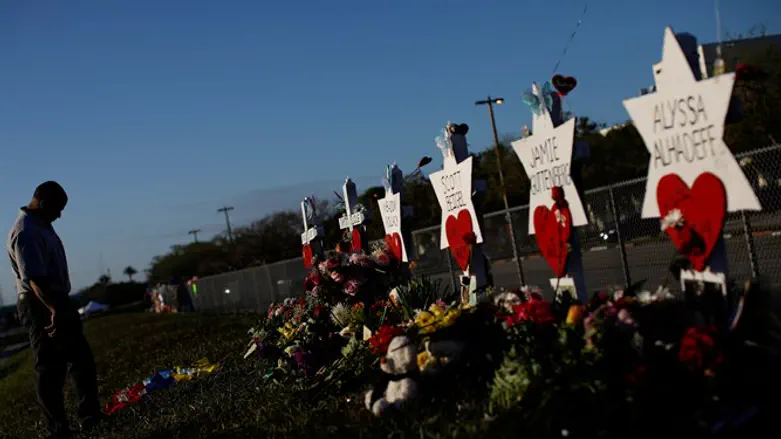
One of the world’s largest newswire agencies carried an embarrassing misquote from the sheriff of Broward County, Florida regarding this month’s horrific school shooting in Parkland’s Marjory Stoneman Douglas High School.
A week after the February 14th shooting which left 17 students and faculty members dead and 14 more wounded, The Associated Press published an article on an officer who failed to intervene during massacre, and included a quote from Sheriff Scott Israel, who said he was “sick to his stomach” in the aftermath of the shooting.
In the original version of the article, AP wrote that “The sheriff said he was ‘devastated, sick to my stomach. There are no words. I mean these families lost their children. We lost coaches. I’ve been to the funerals. I’ve been to the homes where they sit and shiver. I’ve been to the vigils. It’s just, ah, there are no words.’”
In reality, Sheriff Israel had been referring to the traditional weeklong Jewish mourning period, or shiva, during which mourners remain at home and receive condolence calls. The practice is colloquially referred to in English as “sitting Shiva”, translated from Hebrew.
A number of Jewish victims were murdered in the shooting at Marjory Stoneman Douglas High School, where a large portion of the student body is Jewish.
Four days passed before the AP spotted the mistake and issued a correction.
On Monday, AP released the following statement, acknowledging the mistake.
“In a story Feb. 22 about the Florida school shooting, The Associated Press misquoted Broward County Sheriff Scott Israel in some versions of the story when he spoke about the families of the victims. He said, ‘I’ve been to their homes where they’re sitting shiva,’ not “where they sit and shiver.”
The error, as well as the belated retraction, were ridiculed on social media, with one user calling it the “Correction of the year”.
JTA writer Ron Kampeas noted that the AP had botched another reference to the traditional Jewish mourning traditions following a terrorist bombing in Israel in 1997, writing that those paying condolence calls to mourning relatives were “sitting shiva”, and claiming that Jewish funeral rituals included “rented” clothes, rather than torn (or rent) clothes.
